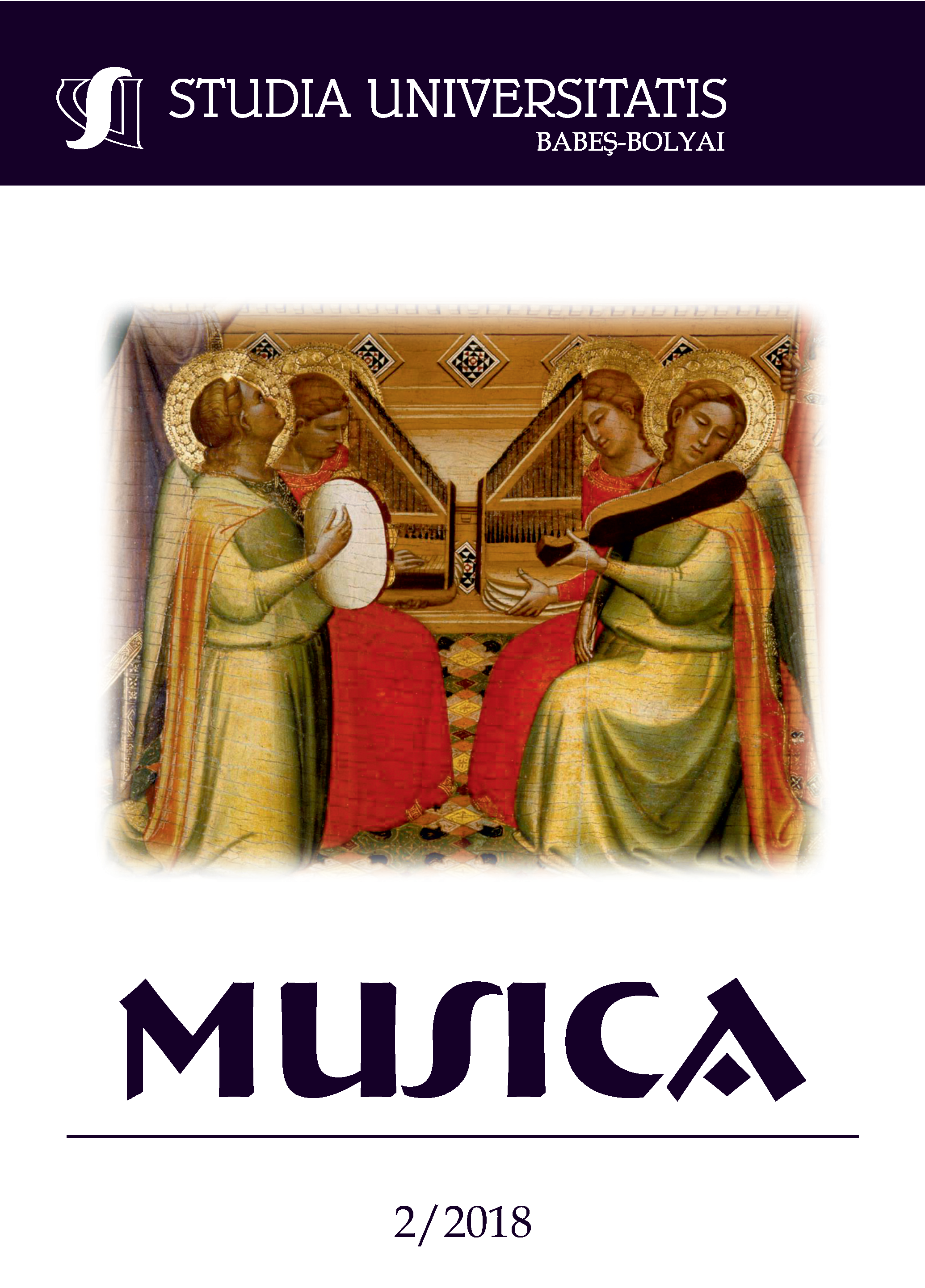THE UNIFYING POWER OF MUSIC IN MARSILIO FICINO’S VISIO
DOI:
https://doi.org/10.24193/subbmusica.2018.2.04Keywords:
power of music, philosophy, cosmic harmony, Ficino.Abstract
This paper emphasizes the most significant moments of Marsilio Ficino’s life and work. Due to his many talents and his expertise in various areas (Philosophy, religion, sciences) his creation greatly influenced the works of important Renaissance figures. The most important ideas and concepts in Ficino’s writings and their relationship with the values and achievements of his time are described herein. Ficino’s translations of important Platonical writings as well other classical Greek authors contributed to a change in the concepts of the Catholic church officials. Ficino’s interpretations and comments about the classical ancient works opened a new perspective on how of human reason relates to religious belief. He outlined a new interpretation of the concept of „human being” as seen by the religious and secular authorities.References
***, The Letters of Marsilio Ficino, Trans. The Language Department of the London School of Economics, 8 vols., London, Shepheard-Walwyn Ltd., 1975-2010.
Allen, Michael, The Platonism of Marsilio Ficino: A Study of His Phaedrus Commentary, Its Sources and Genesis, Berkeley, University of California Press, 1984.
Copenhaver, B-P., Schmitt, C.B., Renaissance philosophy. Oxford, Oxford University Press, 1992.
Ficino, Marsilio, Allen, Michael J. B., Marsilio Ficino and the Phaedran Charioteer: Introduction, Texts, Translations, University of California Press, 1981.
Ficino, M., Three Books on Life. (De vita libri tres). Carol V. Kaske, John R. Clark (eds.), Medieval & Renaissance Texts & Studies in conjunction with the Renaissance Society of America, 1989.
Ficino, Marsilio, Opera Omnia, 2 volumes, Basel, 1576.
Lindberg, D.C., Westman, R.S. (eds.), Reappraisals of the Scientific Revolution, Cambridge, Cambridge University Press, 1990.
Maxwell-Stuart, P.G., The Occult in Early Modern Europe: A Documentary History, London and New York, Macmillan Education UK, 1999.
Perkins, L. Leeman, Music in the Age of the Renaissance, Ed. W.W. Norton, New York and London, 1999.
Plotinus, Armstrong, A.H., Plotinus: in seven volumes, Harvard University Press, 1979.
Plotinus, Enneads III, Arthur Hilary Armstrong (ed.), Harvard University Press, 1967.
Schmitt, C.B., The Cambridge History of Renaissance Philosophy, Cambridge: Cambridge University Press, 1988.
Siraisi, Nancy. Avicenna in Renaissance Italy: The Canon and Medical Teaching in Italian after 1500, Princeton, Princeton University Press,1987.
Tomlinson, Gary, Music in Renaissance Magic: Toward a Historiography of Others, Chicago and London, University of Chicago Press, 1993.
Vickers, B. Occult and Scientific Mentalities in the Renaissance, Cambridge, Cambridge University Press, 1984.
Wear, A., French, R.K., The Medical Renaissance of the Sixteenth Century, Cambridge, Cambridge University Press, 1985.
Webster, Charles. From Paracelsus to Newton: Magic and the Making of Modern Science. Cambridge; New York, Cambridge University Press, 1982.
Downloads
Published
How to Cite
Issue
Section
License
Copyright (c) 2018 Studia Universitatis Babeș-Bolyai Musica

This work is licensed under a Creative Commons Attribution-NonCommercial-NoDerivatives 4.0 International License.






